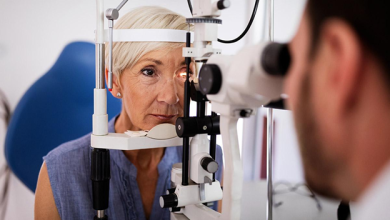Gluten Free Diets: A Nutritionist’s Review

Gluten-free diets are getting a lot of attention. Many wonder if it’s a trend or a necessity. I want to clear up some confusion. I will explain the benefits and drawbacks of going gluten-free. This is not a diet everyone needs. But for some, it is life-changing. Whether you have celiac disease or want to try it out, understanding is key. Let’s delve into what science says. We’ll look at how gluten-free living affects health and nutrition. Just like the team at gynecology mount pleasant provides clarity on women’s health, we aim to shed light on gluten-free diets.
Understanding Gluten and Its Sources
Gluten is a protein found in grains like wheat, barley, and rye. It gives bread its chewy texture. Most people can digest gluten without issues. However, some experience negative effects.
For those with celiac disease, gluten triggers an immune response. This can damage the small intestine. Others may have non-celiac gluten sensitivity. This can cause discomfort but doesn’t damage the intestine.
Pros of a Gluten-Free Diet
There are several benefits for those who need it:
- Improved Health for Celiac Patients: Eliminating gluten helps heal the intestine.
- Reduced Symptoms: Those with sensitivity may notice less bloating and fatigue.
- Increased Awareness: Following a gluten-free diet often leads to more attention to food choices.
Cons of a Gluten-Free Diet
Consider these drawbacks:
- Nutritional Deficiencies: Many gluten-free products lack essential nutrients like fiber, iron, and B vitamins.
- Higher Cost: Gluten-free products can be more expensive than their gluten-containing counterparts.
- Social Challenges: Dining out or attending events may become more complicated.

Gluten-Free vs. Gluten-Containing Foods
| Food Category | Gluten-Free Options | Common Gluten-Containing Foods |
| Grains | Rice, quinoa, corn | Wheat, barley, rye |
| Baking | Almond flour, coconut flour | All-purpose flour |
| Pasta | Rice noodles, quinoa pasta | Spaghetti, macaroni |
Who Should Go Gluten-Free?
Not everyone benefits from this diet. The National Institute of Diabetes and Digestive and Kidney Diseases recommends it primarily for those with celiac disease or diagnosed sensitivity. For others, the diet may not provide any health benefits.
Making the Transition
If you need to go gluten-free, start by consulting a healthcare provider. They can guide you through the transition. Focus on whole, naturally gluten-free foods. These include fruits, vegetables, and lean proteins.
Consider working with a dietitian. They can help you plan balanced meals. This ensures you get all the necessary nutrients.
Conclusion
Gluten-free diets are crucial for specific conditions. For most people, gluten doesn’t cause harm. Always prioritize health over trends. Adopting a gluten-free lifestyle requires dedication and understanding. It involves careful planning and awareness of nutritional needs. Be informed and make choices that best suit individual health needs.





